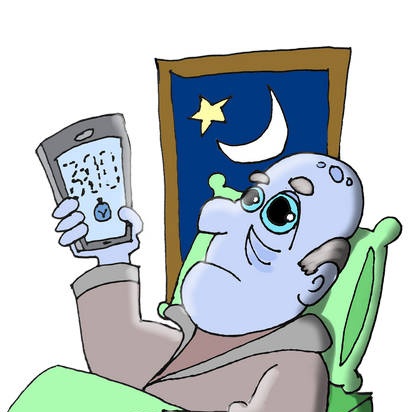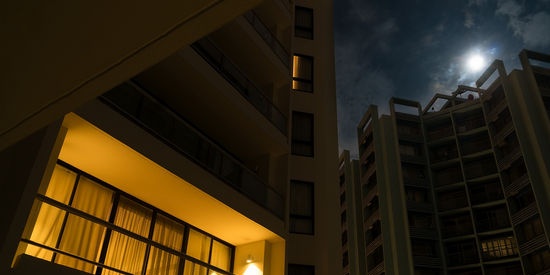Five degrees of severity of insomnia |
|
Let's try to figure out what can be considered insomnia. Where is the border between the forced lack of sleep and the onset of the disease? Let's try to divide the dream into separate elements arranged in a certain sequence. Let's start with the precursors of sleep: drowsiness, some lethargy, the desire to lie down and fall asleep, - arising shortly before the onset of the usual bedtime. These phenomena are a normal and necessary component of sleep. Sleep is preceded by the desire to fall asleep, manifestations of the need for sleep are natural, their absence is a sign of trouble. The second element is considered to be the process of falling asleep, that is, the transition from wakefulness to sleep. The need for this element does not need to be proved to anyone, although for most healthy people, falling asleep goes almost imperceptibly. The dream itself, even when it comes, is not always complete. Normal sleep consists of several phases, each of which must be present in a certain proportion. These phases are determined by the nature of the curves of the electroencephalogram recorded during sleep, and therefore for you and me, dear reader, they do not matter: they cannot be determined at home. However, everyone can distinguish between normal, healthy sleep from superficial sleep, when the events of the night are heard in half-sleep, or from intermittent sleep, when sleep is interspersed with periods of wakefulness.
For most people with insomnia, self-esteem of the severity of insomnia is somewhat impaired. In order to understand why this happens, one must experience the pangs of insomnia oneself, those intermediate states between wakefulness and sleep that arise during this process. Sometimes it is even difficult to understand whether you slept at all that night. It is all the more difficult to assess the degree of insomnia and the trend in its development. Usually, the assessment is given by the general state of health after sleep, by residual fatigue, the degree of decreased performance. Unfortunately, these criteria are not reliable. Let's try to translate them into a more understandable language. 1st degree of severity of insomniaIn fact, it all starts with the fact that a person cannot fall asleep immediately, as soon as he puts his head on the pillow. Sleepiness comes in a timely manner, the desire to fall asleep is, but something does not go well. You have to lie in bed just like that for a while, but then sleep comes suddenly, the moment of falling asleep is not recorded. You kind of fall asleep. Awakening is not a problem. Will, determination and mood do not suffer at this degree of insomnia. 2nd degree of severity of insomniaSleepiness appears on time, but any trifle can break it. Falling asleep stretches, becomes an unpleasant procedure, causes irritation, anxiety ... Sleep becomes short, superficial. Periods of partial awakening, half-naps appear. It's not easy to wake up after such a night: you want to sleep, the morning bustle in the house causes irritation, it is not immediately possible to disperse the gloom. During the day, working capacity is reduced, it is possible to concentrate on solving complex problems only by an effort of will, attention is easily dispersed, and overwhelming drowsiness may suddenly appear. 3rd degree of severity of insomnia
4th degree of severity of insomniaThe desire to sleep exists more as an abstract idea than as a real physiological need. By nightfall, an extraordinary cheerfulness, animation, even excitement, a desire to communicate, talk, do something (though not too tiring) comes. After an evening spent with friends or even alone (the reason for the excitement inside us is the fear of insomnia), it is extremely difficult to fall asleep. Thoughts cannot be calmed down, they come by themselves, in surges, appear as if against will. At some point, reality begins to be perceived distorted, it becomes difficult to draw the line between sleep and reality, to understand whether this or that event actually happened or it is the fruit of a half-asleep fantasy. The same goes on at night: there is no sleep, there is no wakefulness, no falling asleep and awakening, the whole night is endless transitions from one state to another. Awakening is not much different from a nightmare. During the day, sleepiness is almost absent, constant irritability and a feeling of weakness lead to rash actions, sudden mood changes, and violent emotional manifestations. 5th degree of severity of insomniaAs a matter of fact, insomnia becomes the main occupation of a person who has reached this stage. Extreme fatigue, a complete lack of not only desire, but even hope that one day he will be able to fall asleep normally and get enough sleep. Daytime dull lethargy gradually turns into an evening drowsy state and turns into night dreams. No sleep. Sometimes it even seems that it has always been this way and sleep does not exist - not only today and for you, but for all of humanity in general. The hardest thing happens in the morning when you have to get up. Everything is perceived in a black light, the simplest things seem impossible: turn in bed, raise your hand, even sometimes just open your eyes. It is not immediately possible to navigate in the environment, to separate nightmares from the reality of the day. P.P.Sokolov - Victory over insomnia |
| "Close" heart | Hygienic self-massage |
|---|
New recipes

 Undoubtedly, awakening should be considered a stage of sleep. This process can be not only fun. Well-being and mood depend on how the person woke up, "What leg did you get up on?".
Undoubtedly, awakening should be considered a stage of sleep. This process can be not only fun. Well-being and mood depend on how the person woke up, "What leg did you get up on?". After a day spent in the fight against bouts of sleepiness, I really want to fall asleep, but this cannot be done.One has only to go to bed, as thoughts appear in my head, they come and go by themselves, they cannot be restrained or chased away, they are perceived as strangers that have arisen somewhere else, imposed from the outside. These are always unpleasant ideas, memories, doubts, fears, aspirations, inclinations that you want but cannot get rid of. They are intrusive, like mosquitoes in the stillness of the night. All problems, all the difficulties of life are remembered in an exaggerated form. After that, it is no longer possible to sleep fully. Vivid, emotionally charged dreams lead to a sudden awakening. Palpitations, respiratory failure, a feeling of tightness in the chest, internal tremors - all these so-called vegetative sensations do not allow you to fall asleep in the middle of the night. Awakening at this stage of insomnia occurs on time, sometimes even earlier than the required time. Soon after this, morning vigor and clarity of perception are replaced by drowsiness, clouding consciousness and closing eyes. It is very difficult to get involved in the normal rhythm of life, and it seems completely unnecessary. I want to turn away from everything and by all means get a good night's sleep. Attacks of irresistible daytime sleepiness alternate with exaltation, the nervous system is exhausted, and emotions first of all suffer as its most subtle product.
After a day spent in the fight against bouts of sleepiness, I really want to fall asleep, but this cannot be done.One has only to go to bed, as thoughts appear in my head, they come and go by themselves, they cannot be restrained or chased away, they are perceived as strangers that have arisen somewhere else, imposed from the outside. These are always unpleasant ideas, memories, doubts, fears, aspirations, inclinations that you want but cannot get rid of. They are intrusive, like mosquitoes in the stillness of the night. All problems, all the difficulties of life are remembered in an exaggerated form. After that, it is no longer possible to sleep fully. Vivid, emotionally charged dreams lead to a sudden awakening. Palpitations, respiratory failure, a feeling of tightness in the chest, internal tremors - all these so-called vegetative sensations do not allow you to fall asleep in the middle of the night. Awakening at this stage of insomnia occurs on time, sometimes even earlier than the required time. Soon after this, morning vigor and clarity of perception are replaced by drowsiness, clouding consciousness and closing eyes. It is very difficult to get involved in the normal rhythm of life, and it seems completely unnecessary. I want to turn away from everything and by all means get a good night's sleep. Attacks of irresistible daytime sleepiness alternate with exaltation, the nervous system is exhausted, and emotions first of all suffer as its most subtle product.









